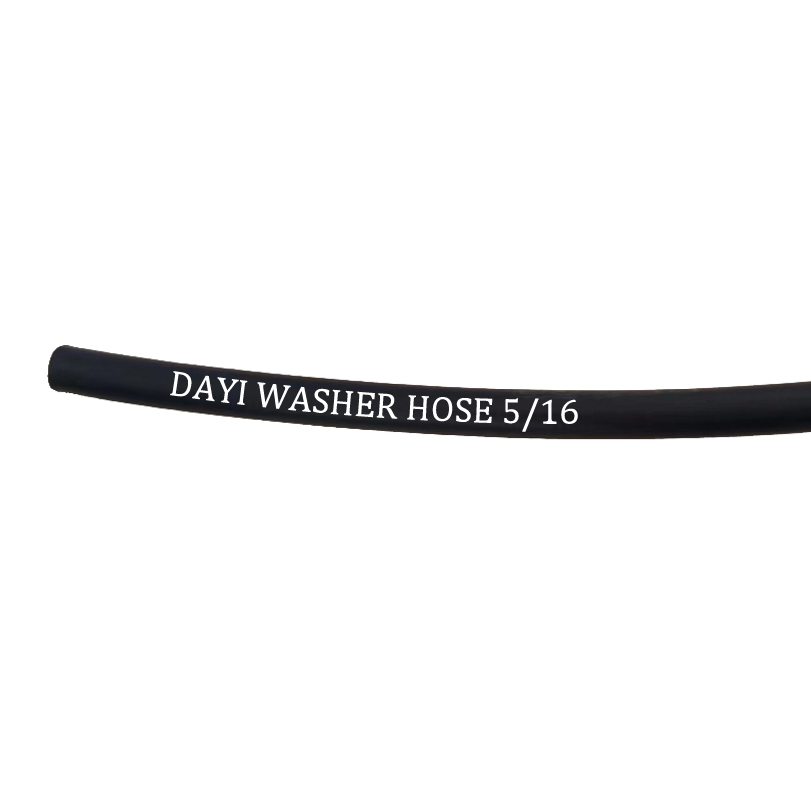335345435
Jul . 26, 2024 00:06 Back to list
High-Quality OEM Gasoline Hose Solutions for Efficient Fuel Transfer and Enhanced Performance
Understanding OEM Gasoline Hoses Importance and Applications
In the automotive industry, components must adhere to strict standards to ensure safety, efficiency, and longevity. One critical component often overlooked in discussions about vehicle performance is the gasoline hose. Original Equipment Manufacturer (OEM) gasoline hoses play a vital role in fuel delivery systems, providing a reliable conduit for fuel from the tank to the engine. Understanding the significance of OEM gasoline hoses, their benefits, and their applications can help vehicle owners and manufacturers alike appreciate their crucial role in automotive design and operation.
What is an OEM Gasoline Hose?
An OEM gasoline hose is a fuel line that is manufactured to meet the specifications set by the original equipment manufacturer. This means that the materials, dimensions, and performance standards are designed to fit the unique requirements of a specific vehicle model. Unlike aftermarket hoses, which may vary in quality and compatibility, OEM hoses are engineered to match the exact specifications of the vehicle's original components. This ensures that they function correctly and maintain the integrity of the fuel system.
Importance of OEM Gasoline Hoses
1. Quality and Safety The most pressing concern when it comes to fuel delivery systems is safety. OEM gasoline hoses are constructed using high-quality materials that can withstand the harsh conditions of fuel exposure, including temperature fluctuations and chemical reactions with fuels. These hoses are rigorously tested to ensure they can handle the pressure and stress of the fuel system, significantly reducing the risk of leaks, punctures, and other failures that can lead to hazardous situations.
2. Compatibility OEM hoses are designed to fit seamlessly with the vehicle's existing systems. Proper fitment is crucial to prevent fuel leaks and ensure optimal performance. Aftermarket hoses may not align correctly or may not have the same pressure ratings as their OEM counterparts, leading to potential operational issues. By using OEM parts, vehicle owners can have peace of mind knowing that all components work harmoniously.
oem gasoline hose

3. Longevity and Reliability Opting for OEM gasoline hoses can extend the life of the vehicle's fuel system. These hoses are built to the highest industry standards, often leading to longer service intervals and reduced maintenance costs. By reducing the likelihood of hose failure, OEM hoses also help protect other components of the fuel system, such as fuel pumps and injectors, thereby reducing repair costs associated with cascading failures.
Applications of OEM Gasoline Hoses
OEM gasoline hoses are used across a wide range of vehicles, from passenger cars to commercial trucks. They serve in various applications, including
- Fuel Delivery Systems Carrying gasoline from the fuel tank to the engine, where it is pumped for combustion. - Breather Systems Allowing the release of vapors from the fuel tank, avoiding pressure build-up and enhancing vehicle efficiency. - Return Lines Facilitating the return of excess fuel back to the tank, ensuring that fuel delivery is efficient and controlled.
In more specialized scenarios, OEM hoses are also used in high-performance vehicles, where the demands on fuel systems are greater. In these cases, the precision engineering of OEM parts becomes even more critical to ensure peak performance.
Conclusion
In conclusion, OEM gasoline hoses are essential components of any vehicle's fuel system. Their superior design, quality assurance, and compatibility make them a reliable choice for anyone seeking to maintain or repair their vehicle. By investing in OEM gasoline hoses, vehicle owners are not just ensuring the safety and efficiency of their cars but also contributing to their longevity and performance. Whether you are an automotive enthusiast or a casual driver, understanding the significance of these hoses can enhance your approach to vehicle maintenance and care.
-
SAE 100 R17 Black Smooth Cover Hydraulic Hose
NewsMar.07,2025
-
SAE 100 R17 Black Smooth Cover Hydraulic Hose
NewsMar.07,2025
-
SAE 100 R17 Black Smooth Cover Hydraulic Hose
NewsMar.07,2025
-
SAE 100 R17 Black Smooth Cover Hydraulic Hose
NewsMar.07,2025
-
SAE 100 R17 Black Smooth Cover Hydraulic Hose
NewsMar.07,2025
-
steel wire braided hydraulic hose
NewsMar.07,2025



